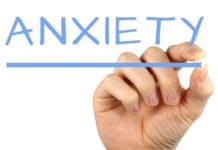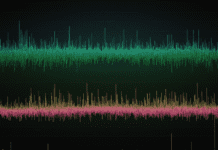Anxiety
If you feel tension or dread that is not tied to a real danger, you may be experiencing anxiety.
Feeling anxious does not mean you have anxiety—many people have moments where they feel anxious without having anxiety as a medical condition.
When anxiety is a mental disorder, it is more persistent, affects daily life, and meets other standards defined by medical professionals.
Anxiety disorders have a variety of causes. They are among the most frequent mental disorders in the United States, affecting millions of Americans.
Common anxiety illnesses include panic disorder, social anxiety disorder, generalized anxiety disorder, obsessive-compulsive disorders, and post-traumatic stress disorder.
Medical professionals should diagnose anxiety disorders. Anxiety is also often a symptom in other psychological and psychiatric disorders, such as clinical depression.
WHAT CAUSES ANXIETY?
When you have anxiety, it is often not caused by a direct threat or specific cause that you can consciously identify.
It might be linked to a memory, an internal personal conflict, or something that makes you feel stressed or threatened, such as experiencing prejudice.
Sometimes, anxiety is caused by a phobia, an irrational fear, or an aversion. For example, having social anxiety disorder makes people feel fearful or embarrassed in social situations.
Medical conditions or medications can also cause anxiety. For example, anxiety can be a symptom of thyroid-related conditions and respiratory distress syndrome.
Medications like birth control pills, thyroid medication, and nonsteroidal anti-inflammatory drugs (pain relievers such as ibuprofen) have anxiety or anxiety-like symptoms as a side effect.
Going through withdrawal from medications like beta-blockers, and drugs that are abused like LSD, cocaine, alcohol, and opiates, can also cause feelings of anxiety.
Consuming too much caffeine can also produce feelings of anxiety.
Anxiety has a physical element as well. Anxiety is a response of the autonomic nervous system (ANS), the part of the body that manages how the body acts when there are dangers or threats.
This response is necessary when there is an actual danger. When the body believes it is in threat, it increases the amount of stress produced.
Since you are not actually in danger, the body must absorb all the extra stress hormone instead of using it to process a real danger. This can create a feeling of anxiety.
WHAT ARE THE SYMPTOMS OF ANXIETY?
Symptoms of anxiety fall into four categories: physical, behavioral, mental, and emotional. Symptoms differ depending on the nature of the anxiety and the person who has it.
The physical symptoms of anxiety are numerous. Many are related to the hormones produced by the ANS in response to danger.
They can include:
- paleness
- sweatiness
- dry mouth
- lightheadedness
- numbness
- headaches
- difficulty sleeping
- nausea
- diarrhea
- vomiting
- tightness in the chest
- rapid heartbeat
- difficulty breathing
Behavioral symptoms of anxiety include feeling restless, pacing, and shaking. You might wring your hands or tap your fingers.
Mentally, symptoms of anxiety include the inability to concentrate or having the same thoughts repeatedly.
You might also feel very overwhelmed. Emotional symptoms are feelings of tension, nervousness, fearfulness, or panic.
When you have extreme anxiety, you can have a panic attack. Panic attacks appear suddenly and without an apparent cause. You can feel severe anxiety symptoms and even a feeling of imminent doom.
HOW IS ANXIETY DIAGNOSED?
Anxiety is not easy to diagnose. There are no medical tests specifically to diagnose anxiety alone, and the disorder is different in everyone.
However, there are specific criteria a medical professional uses in making a diagnosis of anxiety.
A medical professional will make sure that no physical conditions or diseases, or any medications could be the source of the anxiety.
Some related testing might be done. For example, the level of thyroid hormone and blood sugar might be measured through a blood test. Diet and employment history might also be considered.
Often, the diagnosis is made by considering the person’s psychological history and social history.
Psychological tests may be administered, such as the Hamilton Anxiety Scale and the Anxiety Disorders Interview Schedule (ADIS).
HOW IS ANXIETY TREATED?
Treatment for anxiety and anxiety disorders includes psychotherapy, medication, or a combination of both.
The exact treatment varies based on the type of anxiety or anxiety disorder involved, the nature of the disorder, and personal preference.
People with mild anxiety or anxiety disorder might go to therapy. For more serious cases, a combination of therapy and medication is often the most effective.
People with anxiety and anxiety disorders respond better to using both therapy and medication overall.
Therapies used to treat anxiety include cognitive-behavioral therapy (CBT) and relaxation training (also known as anxiety management training).
CBT focuses on identifying when anxiety might occur and developing strategies to overcome it, while relaxation training involves learning techniques like breathing exercises.
Medications that treat anxiety include antidepressants, anti-anxiety drugs, or beta-blockers.
Though beta-blockers are primarily used to treat heart-related conditions, they are sometimes prescribed for social anxiety disorder and other anxiety disorders.
People with anxiety or an anxiety disorder usually try drug or drug combinations for six to eight weeks to see if the medication is effective and has minimal side effects.
Other treatments and practices can also help manage anxiety symptoms and encourage relaxation of the nervous system.
These treatments include meditation, mindfulness training, exercise, yoga, and dance therapy.
If anxiety is not treated, people sometimes turn to alcohol or drug use or abuse to self-medicate. Anxious thoughts might be repressed or rationalized.
Though leaving anxiety untreated does not usually result in death, it does reduce the quality of life.
It is crucial to remember that anxiety is almost always highly responsive to treatment.
Help is available for people who feel overwhelmed with anxiety through local organizations or (SAMHSA) U.S. Substance Abuse and Mental Health Services Administration helpline at 1-800-662-HELP (4357).
Resources
Websites
“Anxiety.” American Psychological Association. https://www.apa.org/topics/anxiety/ (accessed October 25, 2018).
“Anxiety Disorders.” Mayo Clinic. https://www.mayoclinic.org/diseases-conditions/anxiety/symptoms-causes/syc-20350961 (accessed October 25, 2018).
“Anxiety Disorders.” National Institute of Mental Health. https://www.nimh.nih.gov/health/topics/anxiety-disorders/index.shtml (accessed October 25, 2018).
Organizations
Anxiety and Depression Association of America, 8701 Georgia Ave., Ste. 412, Silver Spring, MD, 20910, (240) 485-1001, Fax: (240) 485-1035, information@adaa.org, https://adaa.org.








